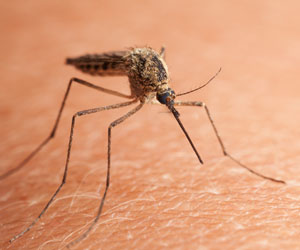However, rather than administering a version of the protein directly, this approach uses mRNA — accompanied by a lipid nanoparticle which protects from premature degradation and helps stimulate the immune system — to prompt cells to code for circumsporozoite protein themselves.
‘A safe, effective malaria vaccine has long been an elusive target for scientists. The most advanced malaria vaccine is RTS,S. RTS,S is based on the circumsporozoite protein of P. falciparum, the most dangerous and widespread species of malaria parasite.’
Those proteins then trigger a protective response against malaria but cannot actually cause infection.
“Recent successes with vaccines against Covid-19 highlight the advantages of mRNA-based platforms — notably highly targeted design, flexible and rapid manufacturing and ability to promote strong immune responses in a manner not yet explored,” said Dr Evelina Angov, a researcher at Walter Reed Army Institute of Research Malaria Biologics Branch.
“Our goal is to translate those advances to a safe, effective vaccine against malaria,”Angov added. The findings are published in the journal npj Vaccines.
While RTS,S is an impactful countermeasure in the fight against malaria, field studies have revealed limited sterile efficacy and duration of protection. The limitations associated with RTS,S and other first-generation malaria vaccines have led scientists to evaluate new platforms and second-generation approaches for malaria vaccines.
“Our vaccine achieved high levels of protection against malaria infection in mice,” said Katherine Mallory, a WRAIR researcher. “While more work remains before clinical testing, these results are an encouraging sign that an effective, mRNA-based malaria vaccine is achievable.”
Source: IANS



